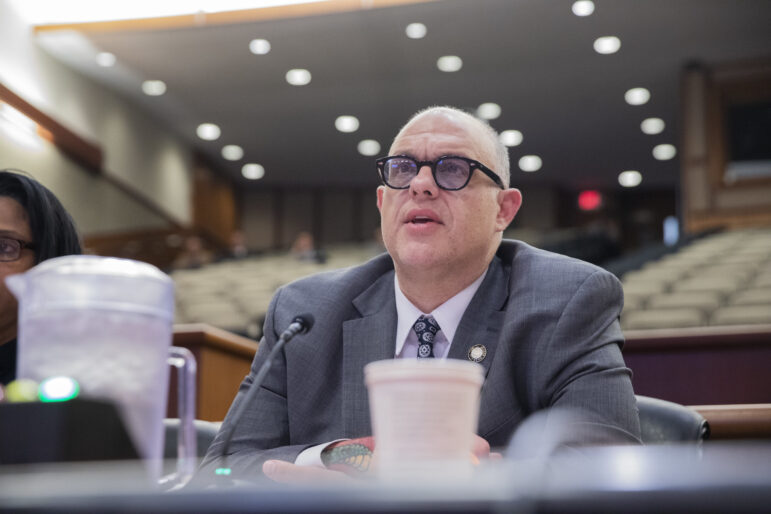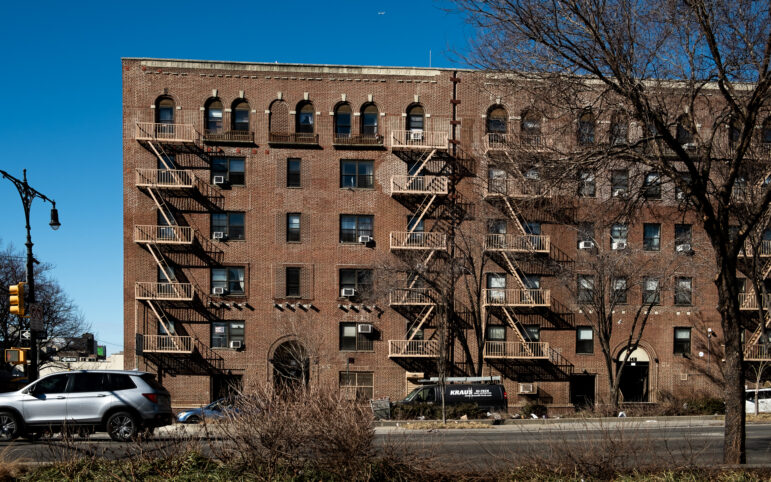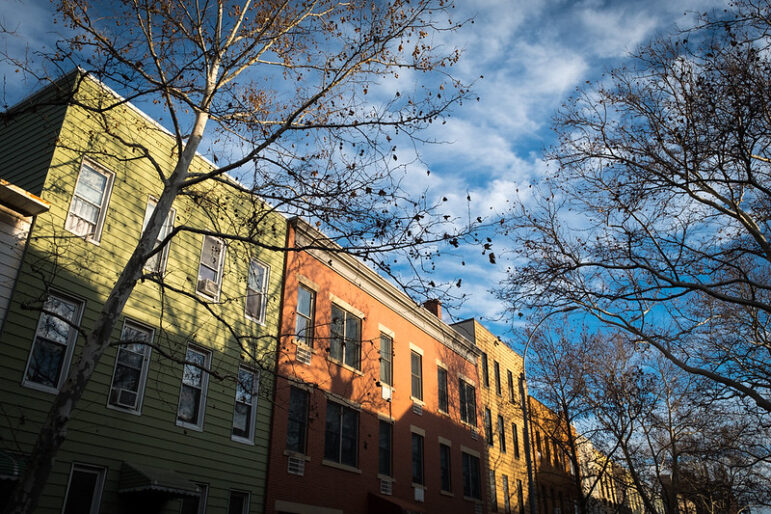Convinced that Family Court proceedings do not adequately protect battered mothers and their children, a grassroots survivors’ group is working to alter the court’s ways – and has a new report to back up its call for change.
Members of the Brooklyn-based group Voices of Women Organizing Project (VOW) met with Family Court Administrative Judge Joseph Lauria recently to discuss their report, “Justice Denied: How Family Courts in NYC Endanger Battered Women and Children.” This was the first in a series of meetings to discuss the group’s judgment that court practices not only leave battered moms feeling unsafe, but also contribute to children being removed from the mothers’ custody and given either to the accused abusive partner, or to foster care.
“When my mother was charged with child abuse, no one even asked me if it was true, and it was not,” says a teenager quoted in the report. Now in foster care, this youth remains perplexed and frustrated by the court’s ruling.
The survey and analysis of women’s experiences, by VOW’s Battered Mothers’ Justice Campaign, includes four major allegations: that court procedures violate policy; that decisions endanger children; that the court system underrates claims of domestic violence, neither protecting victims nor holding abusers responsible; and that the court system is both biased against women, and gives preferential treatment to the wealthier party.
“We issued the report because we really want to get administrative judges to look at the seriousness of our findings and recommendations and get things implemented,” said VOW Director Susan Lob. (The report will be available soon at the group’s website.)
According to Judge Lauria, it sounds like that goal is on the way to being met. “It was a productive and constructive meeting,” he said last week. “The issues raised are very important to family court and family court personnel and we will consider them.”
The report was produced through surveys, conducted in 2006, of 75 women with ongoing family court cases since 2005 or 2006. Only one out of 19 people interviewed felt that the “law guardian,” or child’s attorney, represented their children’s wishes. Forty-two percent of interviewees felt the law guardian did not advocate for the safety of their children or take the history of domestic violence seriously. The report found that in violation of court policy and procedure, law guardians sometimes recommended children to be removed from the battered woman’s custody without actually meeting the mother and child or seeing them interact. Taken together, these factors can cause the victim of domestic violence to lose custody of the child for whom she was once a primary caregiver.
Though the report lacks the two hallmarks of scientific study, randomized samples and statistically significant results, when it comes to legal violations, one person’s tale can be enough to raise eyebrows and rally others.
According to the findings, law guardians at times act contrary to Chief Judge Judith S. Kaye’s administrative order issued in October 2007 specifying the function of these attorneys.
Attorney Karen Freedman, executive director of Lawyers for Children – a nonprofit group offering free legal and social work support on behalf of children – explained the ruling. “Basically, if a child is capable of knowingly and voluntarily articulating his or her position, the attorney will advocate for the child’s wishes, unless the child’s position places them at substantial risk of imminent, serious harm. Absent this level of harm or in the situation where a child does not have the capacity to articulate a position, we do not substitute our judgment for that of a child,” she said. “It is the judge and not the attorney who is charged with the responsibility to determine what is in the child’s best interests.”
Freedman is currently working with the New York State Bar Association to develop a standard of conduct for law guardians. The VOW report recommends that the guidelines be enforced once they are completed.
The report also recommends that law guardians receive training on domestic violence – but Judge Lauria said lawyers already receive such training. He mentioned the Lawyers Committee Against Domestic Violence, which holds workshops every eight weeks.
And while the report claims that the city Administration for Children’s Services (ACS), which oversees child protection and foster care, does not adequately protect children in foster care despite allegations of child abuse, the agency said it’s committed to ensuring the safety of children. It has developed “Practice Guidelines” for addressing relationship abuse in foster care, addressing relationship abuse in the preventive agency setting, and for addressing teen relationship abuse in the foster care setting, according to ACS spokeswoman Sharman Stein.
“These guidelines were created to help agencies in their role as investigators to collect information that is critical to the health and safety of the children and families we serve. ACS has mailed these guidelines to all agencies, and has been engaging the agencies to conduct trainings that support the well-being of children and adolescents in our care,” says a statement issued last week by ACS. “Completed in 2006, these guidelines with their focus on assessment will be better able to create partnerships with domestic violence service providers and preventive and foster care agencies to further enhance best case practice.”
In the statement, ACS also said it “does not penalize mothers because they are victims of domestic violence—and does not prevent them from seeing their children. ACS’s goal is child safety, and safe reunification with the family.”
But the report also found that 54 percent of interviewees, all victims of domestic violence, felt that they were given no help by ACS to reunite with their children placed in foster care. “It’s really difficult to get the kids back once they are placed in foster care. ACS should help with housing if that was what was standing in the way or help with financial issues. The ACS worker is supposed to provide services; it okays housing vouchers and subsidies,” said Lob from VOW. She recounted an interviewee’s experience, in which her daughters were released from foster care back to her as teenagers when she was living in a homeless shelter; the woman did not receive the support from ACS that she needed.
This is just one of many testimonies documented in the report using international human rights documentation standards and participatory research methods. “If human rights standards are violated just one time, it’s enough. We need to do something about it,” said Ramona Ortega, assistant social scientist at the Women of Color Policy Network at NYU’s Wagner Graduate School of Public Service. As former director of the Urban Justice Center’s Human Rights Project, Ortega assisted in training VOW members in the human rights documentation standards used for large-scale war crime tribunals. This type of study has been also done in Denver, Arizona, and Massachusetts to document domestic violence cases. It provides community organizations that are not equipped to do academic studies with the opportunity to produce a study that is both qualitative and quantitative. And it validates a grassroots critique by questioning adherence to international law, even if breaches of city, state or federal law are not indicated. “These women are victims of human rights violations, which point to systemic problems that may be overlooked,” Ortega said.
Judge Lauria wants to continue discussions with VOW, but he has his doubts about the report. “The title’s description is about family court, but only a fifth of the report relates to family court. Four-fifths is about other agencies,” he said. “It does not seem accurate. I was disappointed with the report because there’s no empirical basis of the data, just anecdotal information.” Lauria said meeting with him, which was always an available option, would have been more appropriate than the report. He met with VOW members regularly until their last meeting in 2005.
This article has been corrected to remove any reference to the Nicholson v. Scopetta lawsuit, which is unrelated to the VOW report. City Limits regrets the error. 6/5/08








